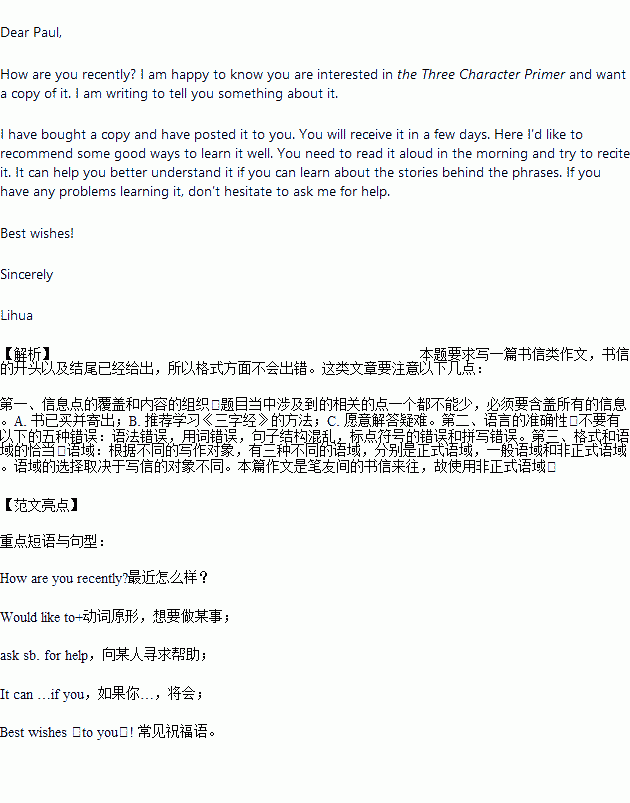题目内容
假如你是李华,你的美国笔友Paul对《三字经》The Three Character Primer 很感兴趣,希望得到你的帮助,给他邮寄一本。请你给他回复一封邮件,要点如下:
1. 书已买并寄出;
2. 推荐学习《三字经》的方法;
3. 愿意解答疑难。
注意:1. 词数100左右;
2. 可适当增加细节,以使行文连贯;
3. 邮件开头和结尾已为你写好。
Dear Paul,
____________________________________________________________________________________________
____________________________________________________________________________________________
____________________________________________________________________________________________
____________________________________________________________________________________________
____________________________________________________________________________________________
______________________________________________________________________
Yours Sincerely
Li Hua
练习册系列答案
 新课标阶梯阅读训练系列答案
新课标阶梯阅读训练系列答案
相关题目

